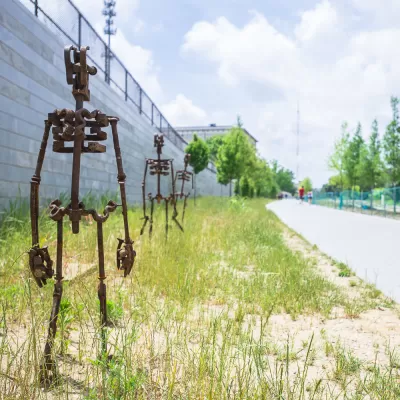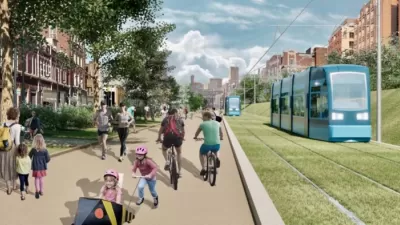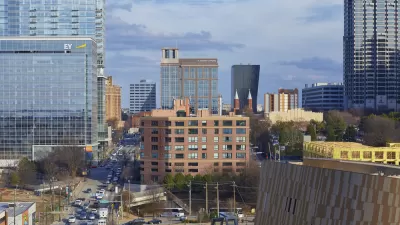According to one argument, the importance of developing affordable housing is a higher priority for the Atlanta BeltLine than a streetcar. It's a question of scarce funding, and how to spend it to the greatest public benefit.

Mike Dobbins, a professor of planning at Georgia Tech’s College of Design, pens an opinion piece for SaportaReport with a potentially controversial proposal for planning around the BeltLine.
Dobbins is advocating for affordable housing, especially for the Atlanta BeltLine to achieve its mandate to produce 5,600 affordable units along the BeltLine by 2030. "The BeltLine’s prospects for being able to step up face two major hurdles: Land cost and money."
Dobbins has a few recommendations for overcoming those hurdles, like considering "the negative impact on housing affordability caused by the agency’s [Tax Allocation District] revenue stream…" Here Dobbins recommends a number of steps, like dialing down marketing and densities, while directing more funding toward property acquisition.
Then for the point that caused outcry on urbanist channels of social media already this week. Dobbins also suggests the BeltLine redirect funding intended for a streetcar toward affordable housing, which could "make a big dent in its obstacles to meeting its affordable housing mandate."
FULL STORY: Overcoming the affordable housing funding challenge

Alabama: Trump Terminates Settlements for Black Communities Harmed By Raw Sewage
Trump deemed the landmark civil rights agreement “illegal DEI and environmental justice policy.”

Planetizen Federal Action Tracker
A weekly monitor of how Trump’s orders and actions are impacting planners and planning in America.

How Atlanta Built 7,000 Housing Units in 3 Years
The city’s comprehensive, neighborhood-focused housing strategy focuses on identifying properties and land that can be repurposed for housing and encouraging development in underserved neighborhoods.

In Both Crashes and Crime, Public Transportation is Far Safer than Driving
Contrary to popular assumptions, public transportation has far lower crash and crime rates than automobile travel. For safer communities, improve and encourage transit travel.

Report: Zoning Reforms Should Complement Nashville’s Ambitious Transit Plan
Without reform, restrictive zoning codes will limit the impact of the city’s planned transit expansion and could exclude some of the residents who depend on transit the most.

Judge Orders Release of Frozen IRA, IIJA Funding
The decision is a victory for environmental groups who charged that freezing funds for critical infrastructure and disaster response programs caused “real and irreparable harm” to communities.
Urban Design for Planners 1: Software Tools
This six-course series explores essential urban design concepts using open source software and equips planners with the tools they need to participate fully in the urban design process.
Planning for Universal Design
Learn the tools for implementing Universal Design in planning regulations.
Caltrans
Smith Gee Studio
Institute for Housing and Urban Development Studies (IHS)
City of Grandview
Harvard GSD Executive Education
Toledo-Lucas County Plan Commissions
Salt Lake City
NYU Wagner Graduate School of Public Service





























